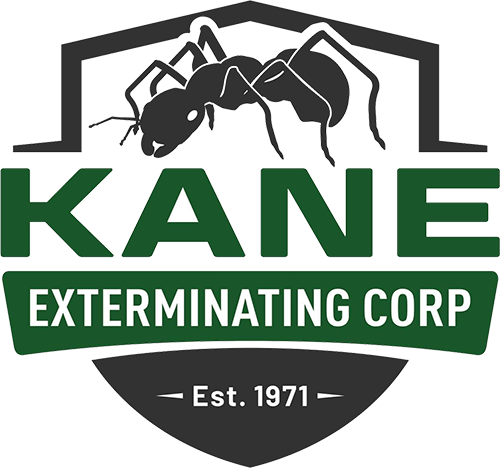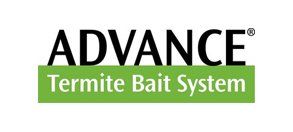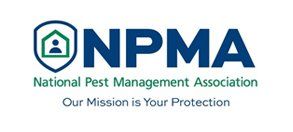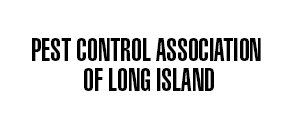TICKS! Should You Spray?
Jimmy Kane • January 25, 2023
Long Island has seen a boom in tick populations and right behind it, a boom of an industry for tick spraying applications. We have all seen it. Every march at all the main intersections. Big signs advertising "ORGANIC TICK CONTROL" "TICK SPRAYING CALL NOW". Does all this stuff even work? That's what we set out to find out in the past couple years, and here's what we found.
When applying pesticides, an applicator needs to ask themselves a few questions.
- Is this product labeled to kill the target pest?
- How is this product labeled to be applied?
- Where does the target pest live?
So, here's the skinny on the organic sprays from our experience. They are great at killing mosquitoes. They can kill ticks. They don't last very long when exposed to rain and water runoff, and they don't penetrate very well into thick leaf litter. Making a standard backpack application will certainly kill some
questing and hunting ticks in the yard, but we wanted to find a way to better treat the areas they prefer to live, and we found our answer. Granular insecticides.
Granular insecticides excel in a number of ways. Instead of washing away with rain, they are activated by watering and rain, soaking into the soil and leaf litter. Now the wet and humid summer season works in our favor instead of working against us. When the ticks are down rehydrating themselves, they are going to uptake this insecticide, and die off before they even have the chance to emerge and latch on to a host. It also has a longer residual and will treat the area for longer, meaning a reintroduction from a deer or racoon walking through your yard won't mean you start from square one again.
Through a couple years of trying out different combinations of treatments, and monitoring populations before and after using tick drags. We found our largest population reductions through programs using granulars, as opposed to standard organic foliar sprays which have been the industry standard for years. This year we are launching our proprietary Tick Assault package to all of our clients, so they can finally breathe easy knowing that their family and pets can enjoy the yard all summer long without these parasites.
We have always been pushing the envelope in trying to find new, safer and effective ways to keep your homes and properties pest free, and we are pleased to bring a new revolution to the lawn care sector which will blow these disease carrying parasites out of the water.

I remember years back, sitting in a class, taught by Matt Frye of Cornell University, where he struck the entire room with a paradigm shifting phrase. A mic drop so to speak. A single sentence which would change my view of pest management for the rest of my career. "Pests are not the problem. Pests are the result of an underlying condition." - Matt Frye So began my journey into Integrated Pest Management, or as we call it in the industry, IPM. IPM is a practice of careful inspection, identification, risk assessment, mechanical changes, and if necessary, pesticide applications. This methodology focuses not necessarily on the pest at hand, but why the pest chose to nest or forage in the reported location in the first place. Pesticides are a useful tool to steer pests away, but they will more often return due to the underlying condition. This consideration is increasingly important in the food manufacturing side of pest control, but this methodology applies to every level and field of pest management. If you haven't contacted a pest control company in recent years, the visit will likely be a little different than you remember. What once was a technician showing up with his silver B&G sprayer asking where the bugs are so he can spray them, is now a specialist showing up with knee pads and a flash light. He may begin by asking other questions such as, "How long have you been seeing them?" "What recent changes to the home, business or property can you recall?" Followed by a "Let me have a look to see what could be going on." Our team is trained on this IPM model, where they will investigate the root causes of your pest condition. This process is going to help the client get to the real reason why they have a pest condition. This process is going to allow both the client and specialist to have a discussion about where the focus should be. President, James Kane was recently featured in PMP magazine, advocating for the importance of IPM strategy and it's broad applications to our industry. "A client who is educated about a pest's biology and it's conducive factors is going to see a light at the end of the tunnel. Technicians performing a root cause analysis is just as important as the product applications they may make." - James Kane Quick Tips From Our IPM Service Team: Termites - Check your gutters and downspouts. Ensure that water flows away from the home. Termites will follow water as it will soak and soften wood, making it more palatable. They will avoid areas which are well drained, and gravitate toward areas which hold moisture content. Fruit Flies - Make sure you stay on top of sanitation. Onion scraps, rotting fruit, open containers, uncapped liquor bottles, organic buildup in sink and floor drains will all create breeding environments. As long as these conditions are present, their fast gestation period will lead to a major infestation. Rodents - Clutter built up behind your shed is going to create a perfect nesting area for rodents. How about bird seed in that shed, leading to them moving in? Next thing you know, they are breeding, and begin investigating for additional resources when they stumble upon a warm air draft coming from a gap in your foundation. Mosquitoes - Standing water nearby is always the culprit. Sometimes it's not on your property, but sometimes it is. Maybe its not so obvious to the layman. Are your gutters properly pitched or do they hold water? Do you have a corrugated drain pipe which your gutters drain into? The peaks and valleys in that black plastic pipe will hold hundreds of perfect water pockets, ripe for breeding. Or maybe there's simply a puddle that won't evaporate under your deck. Sometimes, one time service call is all the client may need, as the home is well taken care of. Other times, it may be advised that there is a water leak/condition nearby, and it may be more fiscally responsible to put routine barrier protections in place until the water condition is rectified. Having a discussion with a client about the real concerns affecting their home or business will earn their trust, and also begin the road to long term success. It's a win-win. The client is going to get their resolve while not shelling out for unnecessary services, while the pest control group avoids call-backs, and bad reputation. When on the search for a pest control provider, make sure to ask about their methodology. There are a number of ways in which pest management groups will assess and handle an issue. Make sure you find someone you trust, who moving you closer to a goal of control, and not just showing up to spray and pray, hoping their quick treatment sticks. You can always trust our team at Kane Exterminating Corp. to ask the important questions, getting us to the root cause so you can sleep well, knowing pests don't want to hang out with you in the first place.

The short answer is yes! However, I like to dig a bit deeper to explain why for people, so they don't think I'm shoving off the question to an easy, quick answer. What I describe usually leaves people surprised. When considering safety of any product, you have to consider a couple things. First thing you should look at is the emboldened signal word on the label. You've all seen it. "Caution" "Warning" and "Danger" This single word is used to quickly describe how acutely toxic the contained substance is. If you rummage through your kitchen or bathroom cabinet, you'll likely see all three of these. One thing that I get the biggest kick out of, is that one of the most common household cleaners, Bleach , carries the strongest word, DANGER with the skull and crossbones. People use bleach with bare hands every day. The second safety concern is the mode of application. Is it an aerosol spray? Is it a liquid? A solid or gel bait? All of these have their own safety considerations and instructions to be followed. For instance, they don't make bleach as an aerosol, or people would be harming their families every day. At Kane Exterminating, when it comes to our products, our strongest ones boast the signal word CAUTION . We will never make an application with anything even remotely as poisonous as that bottle of bleach under your sink. All our technicians are all certified by NYS with 30 hours of core training on safety and label laws. Learning how to read and comprehend a label, and how to apply it safely. Heres one that also boggles my mind. Our strongest liquid product, Termidor NY, shares the same active ingredient and dilution as frontline flea and tick prevention that you apply directly to your animal. Termidor NY: 9.1% Fipronil, Frontline Plus: 9.8% Fipronil. Check it out for yourself, it's crazy to say the least. ALWAYS READ YOUR LABELS! Since I probably lost you in all that jargon, I'll circle back. Yes, our products are meant to kill organisms, but they get a bad rap. With every spray and bait we use, one would have to ingest significantly more than we would ever apply in your home to have any affect on oneself, ones pet, or otherwise. For those still wary of the "C Word", we happily supply organic options as well! The organics aren't as efficient and smell quite strongly, but we will carry options for every client. If you have any specific concerns about a product we would use, just ask us for a copy of the labels to be emailed to you and we can help you read through it and understand how it all works. We all stand behind our products, our tools, and our skills to ensure a safe, effective treatment. For 50 years, Jim Kane Sr. would tell every hire he made at Kane, "We protect health, and structure. If the solution is worse than the problem, we don't do it."




Share On: